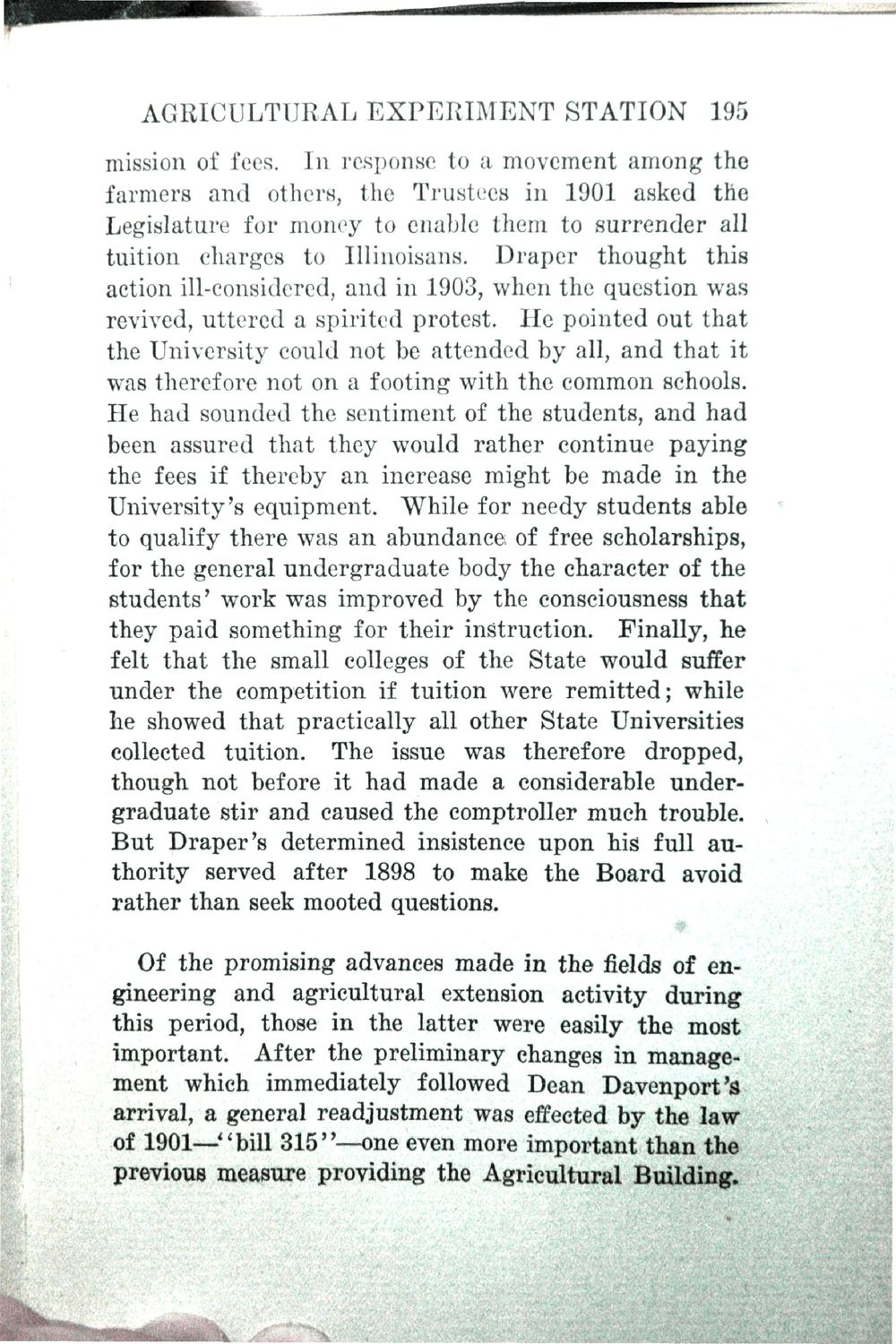| |
| |
Caption: Book - History of the University (Nevins)
This is a reduced-resolution page image for fast online browsing.

EXTRACTED TEXT FROM PAGE:
AGRICULTURAL EXPERIMENT STATION 195 mission of fees. In response to a movement among the farmers and others, the Trustees in 1901 asked the Legislature for money to enable them to surrender all tuition charges to Illinoisans. Draper thought this action ill-considered, and in 1903, when the question was revived, uttered a spirited protest. He pointed out that the University could not be attended by all, and that it was therefore not on a footing with the common schools. He had sounded the sentiment of the students, and had been assured that they would rather continue paying the fees if thereby kn increase might be made in the University's equipment. While for needy students able to qualify there was an abundance of free scholarships, for the general undergraduate body the character of the students' work was improved by the consciousness that they paid something for their instruction. Finally, he felt that the small colleges of the State would suffer under the competition if tuition were remitted; while he showed that practically all other State Universities collected tuition. The issue was therefore dropped, though not before it had made a considerable undergraduate stir and caused the comptroller much trouble. But Draper's determined insistence upon his full authority served after 1898 to make the Board avoid rather than seek mooted questions. Of the promising advances made in the fields of engineering and agricultural extension activity during this period, those in the latter were easily the most important. After the preliminary changes in management which immediately followed Dean Davenport's arrival, a general readjustment was effected by the law of 1901—"bill 315*'—one even more important than the previous measure providing the Agricultural Building.
| |